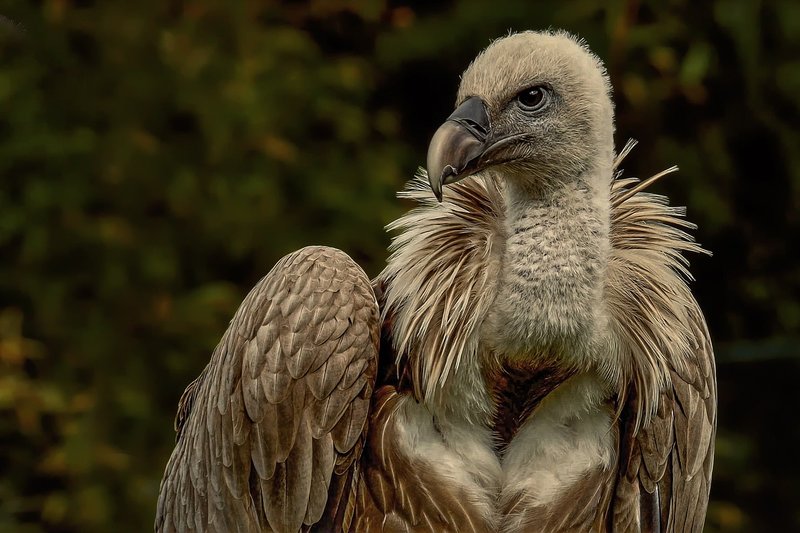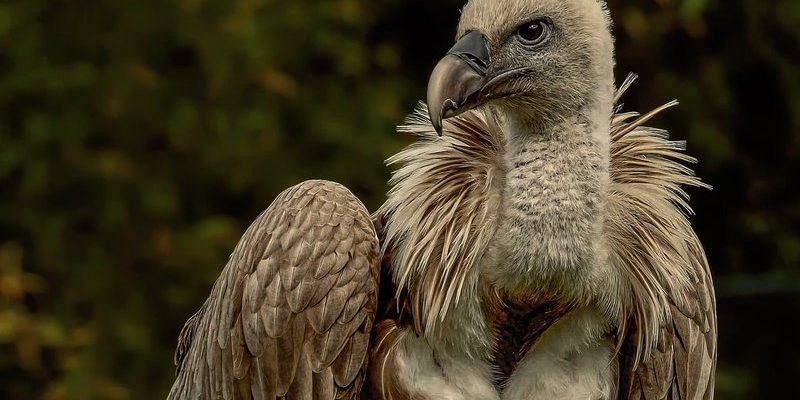
Imagine sitting in a café, sipping your coffee, while two friends discuss their day. Each tone, pitch, and rhythm conveys emotion and intention, helping you understand their feelings without them saying a word. That’s somewhat how a Griffon Vulture’s sounds work. They use different calls to express various needs and emotions, making their vocalizations a vital part of their lives. So, let’s dive into the world of Griffon Vulture vocalizations and explore what these sounds can tell us about them.
Understanding the Basics of Griffon Vulture Vocalizations
Griffon Vultures are not as silent as they may appear. In fact, they have a range of vocalizations that are essential for their survival. These noises can convey everything from alarm calls to mating signals, each serving a unique purpose. You might be surprised to learn that these vocalizations are not just random squawks but rather complex sounds that reflect their social interactions.
One of the most common vocalizations you’ll hear is a deep, guttural croak. This sound is often used during mating rituals and can indicate a bird’s readiness to breed. The croaking is usually accompanied by specific body movements and displays, much like a human might use gestures while speaking.
In addition to croaking, Griffon Vultures also produce softer sounds, such as hisses or grunts. These help maintain social bonds within their groups, especially among family members or during feeding. Picture a family gathering where everyone is sharing food and laughter—the sounds of joy and connection are similar to what vultures experience with their softer vocalizations.
The Role of Vocalizations in Social Interactions
Griffon Vultures are incredibly social creatures. They often gather in large groups, especially when feeding, and their vocalizations play a key role in these interactions. When they’re competing for food, you might hear a chorus of loud, aggressive calls. These sounds help establish dominance and inform other vultures of their presence. Think of it as a bunch of friends arguing over the last slice of pizza—they’re not just fighting; they’re communicating their individual positions in the group.
Interestingly, the vocalizations also help reinforce hierarchical structures within their colonies. Dominant birds have a distinct vocal pattern that signals their status, while subordinate birds may use softer sounds to avoid aggressive encounters. It’s fascinating how something as simple as sound can maintain order and harmony in a community.
Moreover, the acoustics of their calls can vary based on environmental factors like wind or terrain. In open landscapes, their calls might carry farther, allowing them to communicate more effectively with others in the area. This adaptability showcases their intelligence and social awareness, enhancing their survival in the wild.
Alarm Calls and Warning Signals
Like many animals, Griffon Vultures possess alarm calls that signal danger. These calls are crucial for alerting others to potential threats, such as predators or human disturbances. When one vulture spots danger, it emits a sharp, piercing call that captures the attention of nearby birds. This rapid vocalization could be compared to a fire alarm going off—it’s loud, urgent, and serves an important purpose.
These alarm calls aren’t just random; they can vary in intensity and frequency based on the level of threat. For example, a mild disturbance might elicit a lower-pitched grunt, while an imminent danger, like a approaching eagle, might cause a high-pitched screech. This variation helps other vultures assess the situation and decide how to respond.
Vultures are also known to use visual signals in tandem with their vocalizations. For instance, a vulture might call out while simultaneously taking flight, indicating that it’s time for the rest of the group to follow. This combination of sound and movement adds another layer of communication, ensuring that they remain safe while navigating their environment.
Mating Calls and Courtship Behavior
When it’s time to find a mate, Griffon Vultures engage in a captivating courtship display that includes vocalizations. The male vulture often performs elaborate rituals, which can include powerful croaks and rhythmic movements to attract a female. Picture a dance floor filled with couples showing off their best moves—this is how vultures woo each other, using their voices to showcase strength and vitality.
The male’s vocalizations are often complemented by physical displays, such as puffing out their chests and spreading their wings. These actions enhance the auditory signals, making the courtship experience even more engaging for the female. If she responds positively, the pair may begin to bond and establish a lifelong partnership.
Interestingly, once a pair forms, they often engage in duets, where both partners vocalize together in harmony. This delightful interaction strengthens their bond and reinforces their commitment to each other. It’s heartwarming to see how these seemingly harsh birds can exhibit such tenderness through their vocalizations.
Seasonal Variations in Vocal Behavior
Just like humans, animals can change their behavior with the seasons, and Griffon Vultures are no exception. During the breeding season, their vocalizations become more frequent, loud, and varied. This is the time when they’re trying to impress mates and establish territories, leading to a spike in vocal activity.
In contrast, during the non-breeding months, their calls may become softer and less frequent. It’s almost as if they’re taking a break from the hustle and bustle of dating and settling into a more relaxed social life. This seasonal fluctuation in vocal behavior can be quite telling about their life cycles and social dynamics.
Additionally, environmental factors such as food availability can also influence their vocalizations. In times of plenty, their calls may become more playful and relaxed, while periods of scarcity may lead to more aggressive, competitive sounds as they vie for resources.
The Fascination with Vulture Vocalizations
Understanding the vocalizations of Griffon Vultures not only enhances our appreciation for these fascinating birds but also highlights their ecological significance. Their sounds play a crucial role in their social lives, helping them build relationships, communicate, and coexist within their environments.
For bird enthusiasts and wildlife observers, paying attention to these vocalizations can deepen the experience of watching Griffon Vultures in action. It’s like tuning into a concert where every note tells a story, and every call reflects a moment in their lives.
If you ever find yourself in a region where Griffon Vultures soar above, take a moment to listen. You might just discover a world of sounds that reveals the rich tapestry of their social interactions and daily lives.
In conclusion, Griffon Vulture vocalizations are not just background noise; they are essential elements of their behavior and survival. From courtship calls to alarm signals, each sound plays a significant role in conveying their emotions and intentions. So, next time you see these majestic birds, remember that their calls are telling you a story—one that’s worth listening to.

